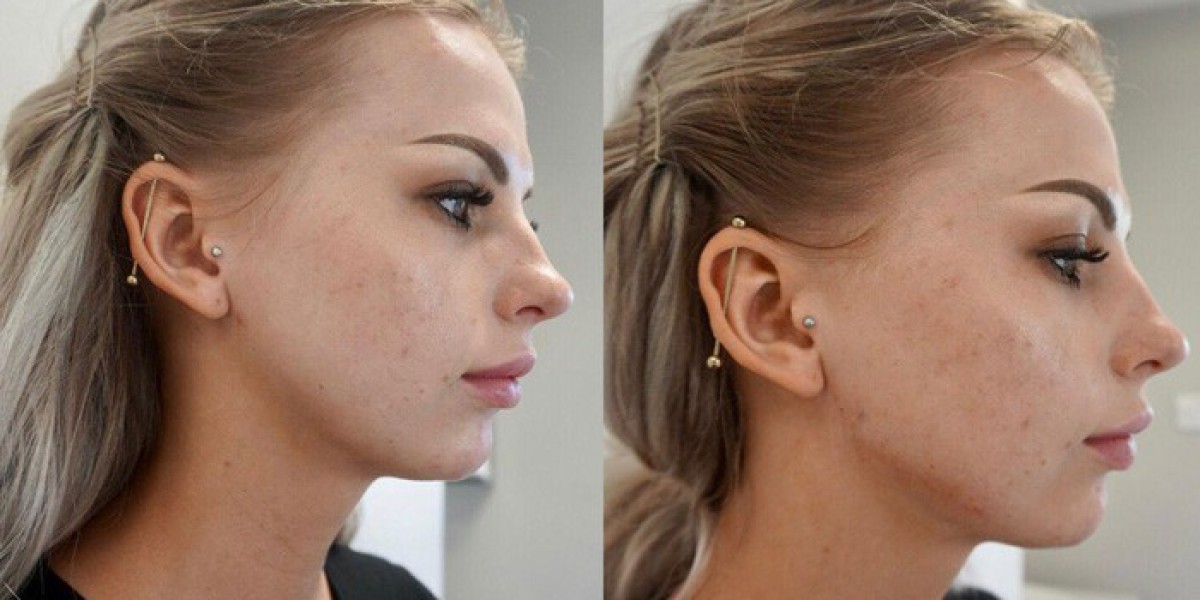In recent years, the world of cosmetic procedures has expanded beyond traditional surgical methods to offer a variety of non-invasive options that can help individuals achieve their desired aesthetic goals. Among these options, jawline filler and cheek filler have gained popularity for their ability to enhance facial contours and restore youthful volume. These minimally invasive procedures are often considered by those seeking subtle yet impactful facial enhancements without the risks and recovery associated with surgical interventions.
Understanding Jawline Filler and Cheek Filler
Jawline Filler: The jawline plays a significant role in framing the face and defining its overall structure. As individuals age, the skin’s elasticity decreases and the underlying bone structure may lose volume, leading to a less defined jawline and the appearance of jowls. Jawline filler, a non-surgical option, involves injecting dermal fillers such as hyaluronic acid into strategic points along the jawline. This helps to restore volume, contour the jawline, and create a more youthful and sculpted appearance.
Cheek Filler: Cheek fillers, also known as dermal fillers for the midface region, focus on rejuvenating the cheeks and enhancing their contours. With age, the cheeks can lose volume and sag, contributing to a tired and sunken appearance. By injecting fillers into the cheeks, often using hyaluronic acid-based products, a skilled practitioner can restore volume, lift the cheeks, and create a more youthful and harmonious facial balance.
The Procedure
Both jawline and cheek filler procedures are performed in a clinical setting by qualified medical professionals, such as dermatologists or plastic surgeons, who have expertise in facial anatomy and aesthetics. The procedure typically involves the following steps:
Consultation: The process begins with a thorough consultation where the patient’s goals, concerns, and medical history are discussed. The practitioner assesses the patient’s facial structure and recommends a personalized treatment plan.
Preparation: Before the procedure, the treatment areas are cleansed, and a topical numbing cream may be applied to minimize any discomfort during the injections.
Injection: Using fine needles or cannulas, the filler is injected into specific points along the jawline or cheeks. The practitioner carefully controls the amount of filler used to achieve the desired results while maintaining a natural appearance.
Post-Procedure: Once the injections are complete, patients can usually resume their daily activities immediately. Some temporary swelling, redness, or bruising at the injection sites is normal and usually subsides within a few days.
Benefits and Considerations
Natural Results: Properly administered jawline and cheek fillers can yield natural-looking results that enhance the overall facial aesthetics without appearing overdone.
Minimal Downtime: Unlike surgical procedures, these non-invasive treatments typically involve minimal downtime, allowing patients to return to their routine activities shortly after the procedure.
Customizable: Each treatment plan is tailored to the patient’s unique facial features and goals, ensuring personalized and satisfying outcomes.
However, it’s important to consider that results are not permanent and may last anywhere from several months to over a year, depending on the type of filler used and individual factors. Maintenance sessions are usually required to sustain the desired look.
Conclusion
Jawline and cheek fillers have revolutionized the field of cosmetic enhancement by providing individuals with the opportunity to enhance their facial features without the need for surgery. With their ability to restore volume, contour the jawline, and lift the cheeks, these procedures offer a safe and effective way to achieve a more youthful and balanced appearance. As with any cosmetic procedure, it’s crucial to consult with a qualified medical professional who can guide you through the process, address your concerns, and help you achieve your desired aesthetic goals.













